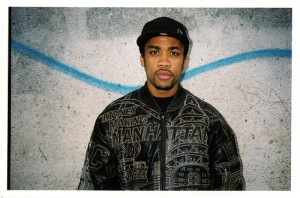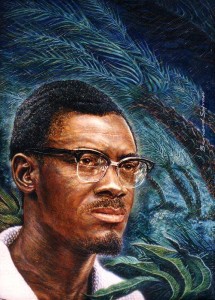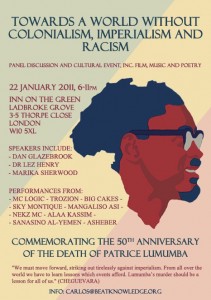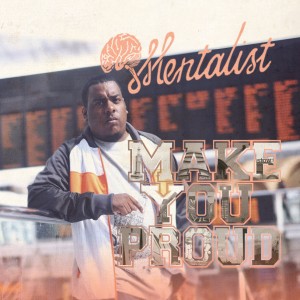Some thoughts on MTV, Lowkey, Ghetts, hip-hop, grime and unity
- March 1st, 2011
- By djmutiny
- Write comment
You almost certainly know the story, so I’ll keep this brief.
Just over a week ago, MTV Base UK aired a show about the UK’s top ten MCs, a list picked by a panel of industry heads including Logan Sama, Ras Kwame, Charlie Sloth and Stanza.
Here’s the list:
- Tinie Tempah
- Dizzee Rascal
- Skepta
- Pro Green
- Wiley
- Giggs
- Devlin
- P Money
- D Double E
- Chipmunk & Lowkey
A fairly predictable list, given that it’s focused at the more commercial end of the ‘urban’ market. A couple of things that were unexpected:
a) Lowkey is included, in spite of being an unsigned and outspoken hip-hop artist, and in spite of having received zero support so far from the ‘industry’.
b) Ghetts isn’t included, in spite of being widely recognised as one of the best (and maybe *the* best) lyricists in the scene.
Anyway, it’s just MTV, so who cares, right?
Well… Ghetts cared. He took the thing personally, and maybe, just maybe, saw the opportunity for a bit of free promotion. In a world where internet hype is everything, why not put out a new track about how pissed off you are, shoot a video, upload it to Grime Daily, and release the single on iTunes?
In case you didn’t already hear Ghetts’s complaint:
Ghetts turns his rage towards a few people:
- P Money: “If it weren’t for me, you wouldn’t know who P Money was.” [Kinda true, although P has got skills]
- D Double E: “As for D Double E, he ain’t done shit but light up a set” [Streetfighter was big still, although not very original for those of us that grew up listening to Skibadee lyrics]
- Professor Green: “I like Pro Green, but when I paid for his album, two words: daylight robbery” [I agree]
- Lowkey: “Lowkey must have had someone on the inside. Yeah that’s it, obviously.” [Umm… not really]
Personally I think the line about Lowkey is just a throwaway comment; Ghetts was probably just genuinely surprised to see Lowkey on the list and probably didn’t know much about him. I’m guessing the lyric had more to do with the fact that ‘obviously’ rhymes with ‘robbery’ than any real disdain Ghetts has for Lowkey (and by no stretch of the imagination is it a ‘send’). But anyway, Lowkey clearly took offence. A week later, after a good deal of egging on from his fans on Facebook, he releases this:
It’s an interesting track. Using Ghetts’s classic ‘Top 3 Selected’ beat, Lowkey keeps focused mainly on his own role within the music industry and the fact that he has earned wide popularity with no support whatsoever from MTV, BBC, Kiss or any other major media outlet.
Of course there are a few jibes directed at Ghetts:
“Never would I side with Lockheed Martin… I don’t make tracks for David Cameron.” [This is a reference to Ghetts’s ‘Invisible’ track encouraging ethnic minorities to fill in the 2011 census – a big topic for another time]
“Top 3 Selected, yeah you was hot then, but what about now when you can’t make top 10.”
It feels like Lowkey isn’t sure if he’s directing the track at Ghetts or at MTV. He should have just rolled with the MTV option in my opinion, but there you go. Lowkey takes a conciliatory tone towards Ghetts in the outro, and makes his point strongly:
Don’t get it twisted; I didn’t make this track to prove Ghetts wrong, cos he was right – he *is* one of the best MCs that this country has ever seen. But I did this track to prove myself, cos so am I. Understand this: MTV put me tied with Chipmunk in that list for one reason and one reason only: friction. And listen carefully to the next thing I’m about to say. As far as I’m concerned, MTV Base never has to mention my name again. I don’t need your support. Yeah? Recognise. Existence is resistance.
I think Lowkey’s response is decent (and no doubt the flows are sick – if he did it to prove himself as an MC, well, mission accomplished), but a much better response to the whole thing would have been to do a collaboration track with Ghetts about this ridiculous music industry that doesn’t work for any of us. That would have been a much more positive outcome; it would have inspired, motivated and educated people, and would have helped a lot to build unity between different subcultures within our wider youth culture.
Ghetts is a major figurehead of the grime scene, and Lowkey is a massive part of the political hip-hop movement that is a growing force within UK underground music. What better pair to lead the unity?
Although there’s plenty of overlap, these two subcultures have some obvious differences and there is a clear lack of unity as it stands. Grime arose from the estates, from the pirate radio scene, from young working class (and primarily black) teenagers expressing themselves and developing a fresh new culture and the businesses to go with it (labels, gigs, websites etc). The audience for political hip-hop has tended to be a bit more student-y, a bit more white, Arab and Asian, a bit more politicised, and often focused around anti-war sentiment.
The differences between the scenes have led to a quite serious division, which the state and media obviously understand very well and are eager to exploit (this is clear from MTV’s decision to put Lowkey and Chipmunk in joint tenth place). We all have to be careful not to allow ourselves to be manipulated by people whose only interests are to silence positivity, disrupt unity and get rich off the back of other people’s talent.
The lyrical narrative of the two scenes is different, no doubt, but both are putting forward valid ideas that need to be heard. Radical hip-hop pushes important political and social concepts in a very innovative way, and inspires people to reflect deeply on the world they live in and to act to improve it. Grime focuses on the harsh realities of life for people who are constantly trodden on by society but who refuse to be ground down.
Yes, the story grime tells might be ugly at times, and may offend people’s moral frameworks (guerilla capitalism isn’t everyone’s cup of tea!), but nonetheless it’s a representation of real life, and is a form of loud cultural expression for people that the mainstream would absolutely love to ignore. Meanwhile there are issues such as police brutality, government cuts, racism and the exploitative music industry, which are shared ground between the two scenes and which are an important basis for bridging the gap between them.
Are there real problems with some of the lyrical themes in grime? Sure. There is no shortage of misogyny, of glorified black-on-black violence and more. But how can people address those problems except by reaching out and developing a context in which real discussion and progress can take place? A collaboration track would be a great step towards that; a Youtube diss is not.
Young people from working class and non-white backgrounds are rightly very sensitive to criticism, given that the media, the education system and the ‘justice’ system are highly prejudiced against them. P Money says it well: “Now I can blend with the wealthiest guys / My life’s a sin but look what I made of it / See you won’t understand / Only the guys on road can hear what I’m sayin, innit”. His message is clear: don’t judge me, cos you’re not from where I’m from; you don’t know what it feels like to be poor in a world that constantly dehumanises poor people and puts rich people on a pedestal, so don’t hate me for doing whatever I need to do to not be poor any more.
So the barrage of anti-grime criticism that’s been fired off since Ghetts released ‘Who’s on the Panel’ is extremely unhelpful. We need to learn not to judge but to relate to people and to lead by example. The fact is that the mainstream, the government, the corporations hate *all* our culture. If it was up to them, you’d have never heard of Lowkey *or* Ghetts. The two scenes have a lot to gain from each other and a lot to learn from each other.
In terms of creating the unity we need, Lowkey and Ghetts are uniquely well positioned to take the lead and set the right example. The mini-beef between the two has already led to some despicable racist anti-black slurs against Ghetts from some of Lowkey’s ‘supporters’ (and a fair few anti-Arab and anti-Asian retorts). This could easily have been avoided if Lowkey and Ghetts had just done a track together instead of getting bogged down in childish verbal warfare on the internet.
Hopefully that collaboration can happen soon. Better late than never.




